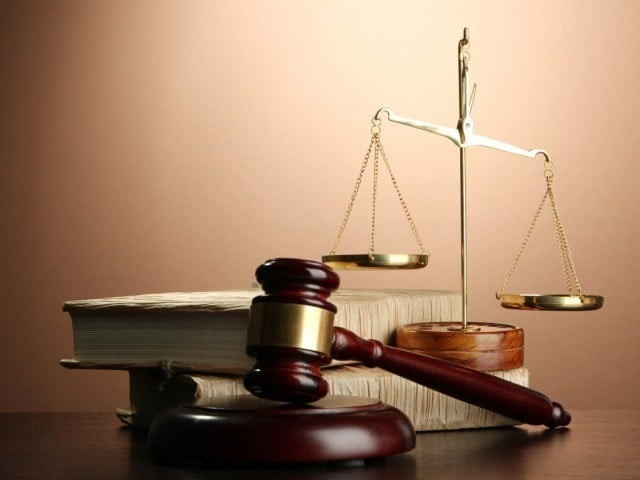Sedition law haunts Subcontinent since colonial era
Jinnah had successfully defended Tilak in case filed under Section 124(A)

Not everyone knows that Barrister Muhammad Ali Jinnah, who later on became the founder of Pakistan, was the defence lawyer for Bal Gangadhar Tilak -- one of the most prominent leaders of colonial India before Mahatma Gandhi’s emergence on the national stage -- in a sedition case and secured him a victory against the British government in 1916.
Tilak was tried several times under the sedition clause for inciting the public through his writings.
A British journalist, Sir Ignatius Valentine Chirol, who passionately defended the British empire, had once called Tilak the “father of Indian unrest”.
In his 1916 trial, Tilak was successfully defended in his third sedition trial by Jinnah, who went on to become Pakistan’s Quaid-e-Azam.
Nevertheless, the British government continued using sedition clause against others and when Gandhi was charged by the British colonial government in 1922, he had famously said: “Section 124(A) under which I am happily charged, is perhaps the prince among the political sections of the Indian Penal Code designed to suppress the liberty of a citizen.”
Read more: Sedition law part of colonial legacy: legal experts
Fast forward to 2023, decades after the British rulers have returned; the sedition clause still remained a part of the Pakistan Penal Code (PPC) of 1860 until Thursday when Justice Shahid Karim of the Lahore High Court struck it down.
The use and misuse of Section 124(A) of the PPC has long been a subject of public debate but the LHC judge declared that the sedition clause was ultra vires of the Constitution.
Section 124(A) read: “Whoever by words, either spoken or written, or by signs, or by visible representation, or otherwise, brings or attempts to bring into hatred or contempt, or excites or attempts to excite disaffection towards, the Federal or Provincial Government established by law shall be punished with imprisonment for life to which fine may be added, or with imprisonment which may extend to three years, to which fine may be added, or with fine.”
Besides Tilak and Gandhi, student leaders of Jawaharlal Nehru University (JNU) Kanaiyha Kumar and Umar Khalid have faced sedition charges in 2016 for allegedly shouting “anti-India” slogans during a protest.
In Pakistan, political leaders, activists, human rights defenders, students, journalists as well as an ex-general have also been charged with and arrested for sedition for simply speaking against or criticising certain government actions or policies.
Hundreds of people in Pakistan, including PML-N supremo and former premier Nawaz Sharif as well as his daughter Maryam Nawaz, MNAs Mohsin Dawar and Ali Wazir, PTI’s Fawad Chaudhry, Shaukat Tareen, Shahbaz Gill, Hassan Niazi, PTM leader Manzoor Pashteen and Lt Gen (retd) Amjad Shoaib are among the prominent individuals who in recent years have been booked in sedition cases.
A local daily reported in 2016 that politicians including Zulfikar Ali Bhutto, Benazir Bhutto, Bacha Khan, G M Syed, Wali Khan, Mahmood Achakzai, Altaf Hussain, Fatima Jinnah, Husain Shaheed Suhrawardy, Ghaus Bakhsh Bizenjo, Akbar Bugti; Faiz Ahmed Faiz, Saadat Hasan Manto, and Habib Jalib among intellectuals and writers; lawyer Asma Jahangir; diplomat Hussain Haqqani; and various journalists such as Hamid Mir; have found themselves at various times branded traitors as well as accused of conspiracy against the country and sedition.
“We welcome the LHC verdict striking down the colonial era sedition law,” said PPP Secretary General Farhatullah Babar.
“I would not like the government to appeal against it,” he added.
The former PPP senator continued that in fact, parliament itself should have scrapped this colonial law, which was designed by imperial forces to silence the natives.
“It is a pity that parliament failed to take the initiative and it was carried out by the judiciary,” Babar observed.
The PPP leader further said the government should welcome the verdict and never think of invoking this law against anyone.
PPP Senator Raza Rabbani, while refraining himself from commenting on the matter without first reading the judgment, said all he could say was that his Private Members Bill on Section 124(A) was passed by the Senate but pending in the National Assembly.
He, however, said if the clause had been struck down, “it is a good step”.
Senator Rabbani’s bill, which was introduced on June 8, 2020, and passed by the Senate on July 9, 2021, seeks the omission of Section 124(A). In the Statement of Objects and Reasons, Rabbani stated that the section was part of the inherited colonial structure of governance and it was for the natives who had to be kept under control least they incited rebelling against their foreign masters.
“This law served a brutal occupying force and today is being applied with increasing regularity to crush political dissent and make the citizens submit to unquestionable obedience,” he wrote.
Rabbani added that today the relationship was “no longer as master and subject”.
“Respect for the government cannot be regulated,” he maintained.
The PPP stalwart continued that it arose from the state of respect for individual freedom and the ability to govern.
Federal Minister for Information and Broadcasting Marriyum Aurangzeb did not share her views on the LHC decision till the filing of this story.
Another key federal minister refrained from commenting on the matter.



















COMMENTS
Comments are moderated and generally will be posted if they are on-topic and not abusive.
For more information, please see our Comments FAQ